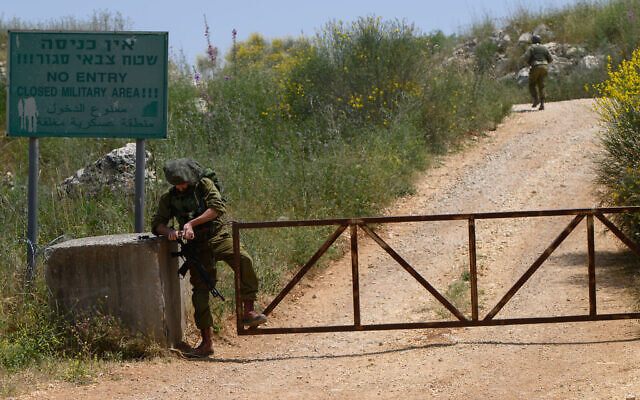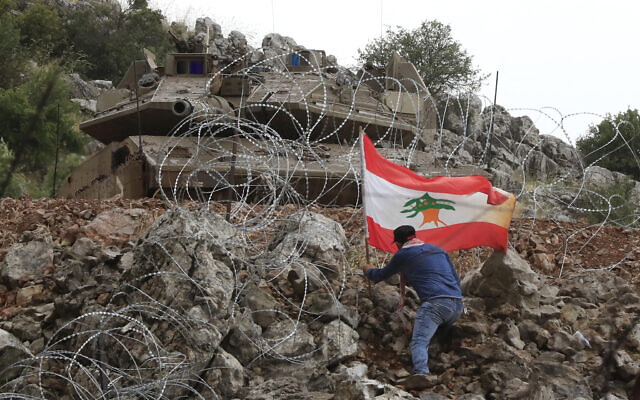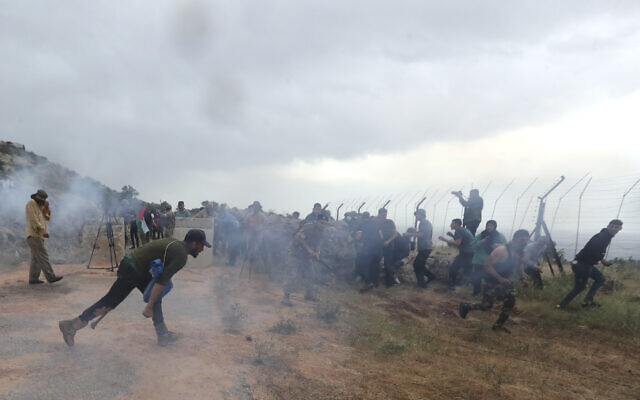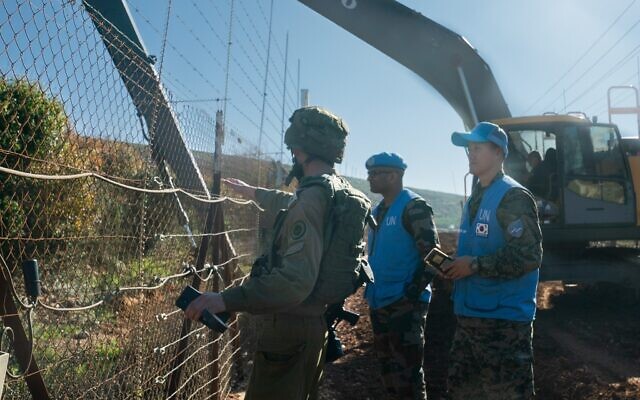Hezbollah set up armed posts in Israeli territory on Lebanon border 2 weeks ago
IDF says matter ‘being handled with all relevant parties’; Israel aims to have UN peacekeepers remove tents placed over Blue Line, manned by terror operatives
Emanuel (Mannie) Fabian is The Times of Israel's military correspondent.

The Hezbollah terror group established two tents in Israeli territory on the Lebanon border some two weeks ago, and the army had yet to clear them out as of Wednesday.
The story was first published by the Kan public broadcaster on Wednesday, citing details from a recent closed meeting of the Knesset’s Defense and Foreign Affairs Committee.
The Israel Defense Forces said in a statement in response that “the matter is known and being handled with all the relevant parties.”
Israel and Lebanon do not have a formal border due to territorial disputes; however, they largely abide by the United Nations-recognized Blue Line between the two countries.
The Blue Line is marked with blue barrels along the border and is several meters from the Israeli fence in some areas, which is built entirely within Israeli territory.
The tents, manned by armed Hezbollah members, were established over the internationally recognized Blue Line in the contested Mount Dov region, also known as the Shebaa Farms — an area claimed by Israel, Lebanon and Syria.

The IDF said it aims to deal with the tents through diplomatic means and have a UN peacekeeping force remove the tents, but threatened that it may use force eventually.
The IDF believes the tents do not pose a threat to Israel’s security, despite violating its sovereignty.
Hezbollah has dozens of observation posts along Israel’s northern border, several meters from the Blue Line. According to the IDF, these positions represent a violation of United Nations Security Council Resolution 1701, which ended the 2006 war. The resolution calls for armed groups besides the official Lebanese military and peacekeeping United Nations Interim Force in Lebanon (UNIFIL) to remain north of the country’s Litani River.
The IDF has been working on a new border wall with Lebanon to replace an aging fence in the area. The engineering work, which typically takes place to the north of Israel’s fence but within Israeli territory, has sparked several minor clashes on the border in recent months.

UNIFIL has stepped in at times and stopped the engineering work after complaints by the Lebanese Army of Israeli forces allegedly crossing the Blue Line.
The new Hezbollah posts were believed to have been established by the terror group in response to the IDF engineering work.
UNIFIL has been in Lebanon since 1978. Composed of nearly 10,000 soldiers, it is deployed in the south of the country — a stronghold of Hezbollah — to maintain a barrier with Israel, as the two countries technically remain at war.

UNIFIL did not immediately respond to requests for comment on the Hezbollah tents.
The Hezbollah terror group has long been the IDF’s most significant adversary on Israel’s borders, with an estimated arsenal of nearly 150,000 rockets and missiles that can reach anywhere in Israel.
Work on a new border wall with Lebanon began in 2018. By 2020, the military and Defense Ministry Borders and Security Fence Directorate had completed only 15 kilometers (9 miles) of concrete walling along the approximately 130-kilometer (80-mile) border in order to protect the 22 adjacent Israeli villages.
Eventually, the plan is to construct a barrier along the entire border — a project that would cost NIS 1.7 billion ($470 million).









